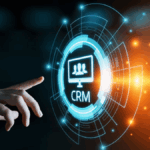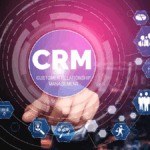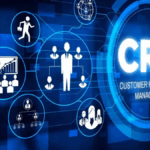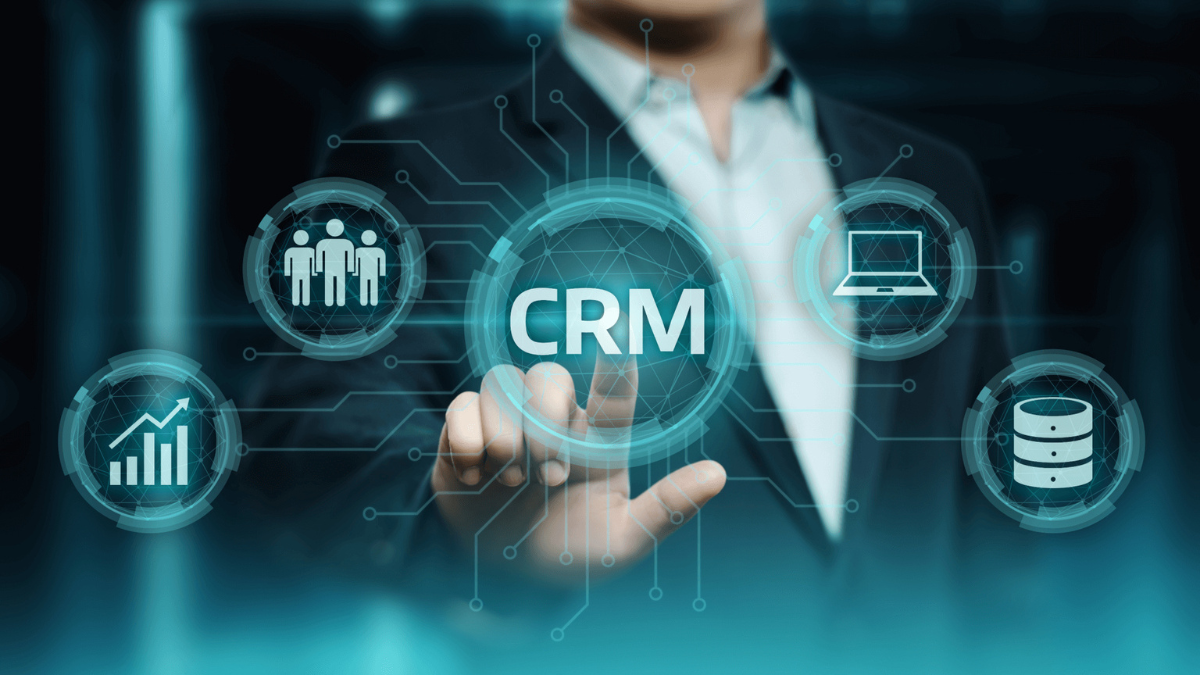Customer Relationship Management (CRM) systems have become essential tools for small businesses in 2025. They help streamline operations, boost customer engagement, track leads, and improve overall productivity. Choosing the right CRM can transform how small enterprises grow and maintain client relationships.
Below, we’ll explore the top 10 CRM systems for small businesses in 2025, their key features, usability, pricing flexibility, and why they are favored by growing teams.
Why Small Businesses Need CRM in 2025
In 2025, small businesses are increasingly relying on automation, customer insights, and digital sales pipelines. CRM software helps them:
- Centralize customer data
- Track interactions and sales
- Automate follow-ups
- Analyze sales and marketing performance
- Improve customer retention
With features like mobile access, AI-driven analytics, and customizable workflows, modern CRMs are designed to fit lean teams with limited resources and maximize their potential.
Top 10 CRM Systems for Small Businesses in 2025
1. SimpleTrack CRM
Key Features:
- Clean, user-friendly interface
- Lead tracking and scoring
- Custom dashboards for sales and support teams
- Workflow automation tools
- Email integration with Gmail and Outlook
- Mobile app support
Ideal for startups and freelancers, SimpleTrack CRM offers simplicity and powerful functionality without overwhelming users.
2. GrowthLoop CRM
Key Features:
- Omnichannel communication (email, SMS, chat)
- Visual sales pipelines
- AI-based task suggestions
- Custom fields and reporting
- Integration with over 1,000 third-party apps
GrowthLoop CRM is tailored for small sales teams that need agility and intelligent assistance to stay competitive.
3. AgileWorks CRM
Key Features:
- Built-in marketing automation
- Drag-and-drop campaign builder
- Client segmentation tools
- Call logging and scheduling
- Collaboration features for small teams
AgileWorks is great for businesses focusing on email marketing and nurturing customer journeys.
4. SmartPipeline CRM
Key Features:
- Visual Kanban-style pipeline management
- Built-in calendar and meeting scheduler
- Easy quote and invoice generation
- Voice call and notes logging
- Smart alerts and reminders
This CRM is perfect for service-based businesses needing close client communication and follow-up reminders.
5. Pulse360 CRM
Key Features:
- Real-time activity tracking
- Contact history and lifecycle monitoring
- Automation for email, texts, and task reminders
- Simple setup and onboarding
- Tiered pricing for different business sizes
Pulse360 is built for freelancers and solopreneurs looking for a no-fuss CRM that still offers rich features.
6. LeadNest CRM
Key Features:
- Strong lead and pipeline management
- Mobile-first design
- Real-time data sync and access
- Marketing funnel builder
- Appointment scheduling tools
LeadNest excels in mobile usability and is well-suited for remote and on-the-go entrepreneurs.
7. ConnectHub CRM
Key Features:
- Unified communications (chat, call, video)
- Smart tagging and segmentation
- Task and project management add-ons
- Role-based permissions
- Multi-language support
A top pick for multicultural or global small businesses, especially those managing client projects.
8. ZenFlow CRM
Key Features:
- AI-driven insights for customer trends
- Auto-generated email templates
- Goal tracking and performance analytics
- File storage and activity timelines
- Simple lead import from spreadsheets
ZenFlow combines analytical insights with practical tools, offering everything a small team needs to stay organized.
9. TaskForce CRM
Key Features:
- Seamless integration with task management tools
- Customizable workflow stages
- Productivity reports and KPIs
- Cloud document storage
- Email campaign tracking
Especially good for teams focused on delivering client services and needing cross-functional collaboration.
10. VelocityCRM
Key Features:
- All-in-one dashboard for deals, tasks, and contacts
- SMS and WhatsApp campaign options
- Gamified sales tracking
- Smart contact merging
- Visual reporting with filters
VelocityCRM stands out for gamification, making sales engagement more motivating and fun for small teams.
How to Choose the Best CRM for Your Business
Understand Your Needs
- Are you a solopreneur or a team?
- Do you focus on email marketing, service delivery, or sales calls?
- Do you need mobile access or advanced reporting?
Set a Budget
Some CRMs offer free versions, while others charge per user. Understand what features you need and choose a plan that balances affordability and scalability.
Test the Software
Most CRMs offer free trials or demos. Test usability, customization options, and integrations with your current tools.
Prioritize Customer Support
Fast and reliable customer support is essential. Look for CRM vendors that provide chat, email, or even video call support for onboarding and troubleshooting.
Consider Growth Potential
Pick a CRM that can grow with you. Look for features like automation, reporting, integrations, and scalability.
CRM Trends for Small Businesses in 2025
1. AI-Powered Insights
Modern CRMs are integrating AI to help small businesses identify customer behavior patterns and recommend next actions.
2. Voice Command and Chatbot Integration
Voice note recording, AI chatbots, and smart assistants are making it easier to log data and interact with clients hands-free.
3. Hyper-Personalization
CRMs now allow detailed customer profiling, enabling more personalized marketing and service approaches.
4. Mobile-First Design
Most small business CRMs in 2025 are fully optimized for mobile, with app functionality matching desktop versions.
5. Integrated Tools
CRMs now offer built-in project management, invoicing, social media, and email marketing tools to reduce software sprawl.
Benefits of Using CRM for Small Businesses
- Enhanced customer satisfaction
- Streamlined communication
- Increased sales and conversion rates
- Better forecasting and reporting
- Reduced manual tasks with automation
- Improved collaboration among team members
- Centralized customer data management
Conclusion
In 2025, the right CRM system is more than a sales tool—it’s a digital partner that helps small businesses grow, engage clients, and make data-driven decisions. Whether you’re a solopreneur, a small team, or a growing startup, there’s a CRM system on this list tailored to your unique needs.
Take advantage of free trials, prioritize features that matter most to you, and choose a CRM that will evolve with your business. In a world driven by customer relationships, your CRM is your competitive edge.
FAQs
What is a CRM system?
A CRM (Customer Relationship Management) system is software that helps businesses manage interactions with current and potential customers, track sales, automate workflows, and improve client relationships.
Are there free CRM systems for small businesses?
Yes, many CRM providers offer free or freemium versions with limited features—ideal for freelancers or startups with basic needs.
Can I use CRM for marketing automation?
Absolutely. Many CRMs now include email campaigns, segmentation, lead scoring, and drip marketing tools.
What is the best CRM for a solo entrepreneur?
For solopreneurs, CRMs like Pulse360, LeadNest, or SimpleTrack offer simple interfaces, essential features, and low-cost plans.
Do I need a CRM if I have only a few clients?
Yes. A CRM helps you stay organized, follow up effectively, and prepare for future growth. Even with a small client base, it increases your efficiency and professionalism.
What are the top features to look for in a CRM?
Key features include contact management, sales pipeline, automation, integrations, reporting, mobile access, and ease of use.
Can CRM systems integrate with other tools?
Most modern CRMs integrate with email platforms, calendars, payment gateways, task management tools, and even accounting software.
Is mobile CRM important in 2025?
Yes. With the increase in remote and mobile work, having a CRM that works seamlessly on smartphones and tablets is crucial.











